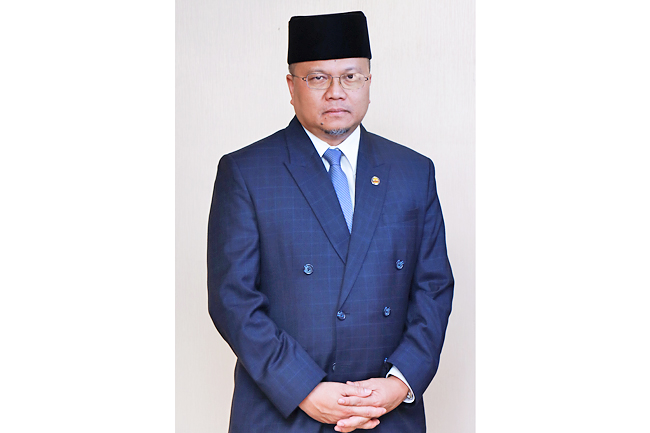Adib Noor
World Autism Awareness Day is celebrated every April 2 with the aim of increasing awareness and commitment to efforts to improve the quality of life of autistic individuals, to know the importance that we take into account the basic rights of individuals with disabilities and give them a fair chance to achieve the main goal of improving their quality of life.
This was stated by Minister of Health Dato Seri Setia Dr Haji Mohd Isham bin Haji Jaafar in a message yesterday.
The minister said this year, the United Nations (UN) chose ‘Transformation: Toward a Neuro-Inclusive World for All’ as the theme, celebrated internationally with a virtual event today.
“The event is in collaboration with autistic individuals around the world to discuss how narrative transformation related to neurodiversity can overcome the challenges faced by individuals with autism and how we can improve their quality of life,” said the minister.
The event aims to raise awareness on the contribution that individuals with autism have made and can make to society and to the achievement of the UN Sustainable Development Goals.
He said autism is a lifelong neurological condition that begins in early childhood, regardless of gender, race or socio-economic status. The condition of neurological variations changes a person’s development and can have an impact on autistic individuals in terms of learning, family life, employment opportunities and the individual’s ability to be independent.

The diagnosis for individuals with autism is made between the ages of two and three years and “autism spectrum” refers to features or characteristics which include the uniqueness in terms of how they communicate and interact socially; and uniqueness in terms of behaviour, interests and activities.
“Due to the two characteristics, autistic individuals may show abnormalities when interacting socially with other people and using different methods or ways of learning. They may show a deep interest in certain things, are more comfortable doing something routinely and find it difficult to accept if there is a change to their routine. Individuals with autism may find typical communication challenging and may have their own way of processing sensory information,” the minister said.
However, with appropriate support and acceptance, individuals with autism will be able to enjoy fair opportunities and full and effective participation in community life.
It was shared that autism rates are extremely high and increasing worldwide. The Centres for Disease Control and Prevention in the United States (US) estimates that one in 36 (2.8 per cent) eight-year-old children have been diagnosed with autism. This shows an increase from the previous estimate that in 2018, autism was identified in one in 44 people (2.3 per cent).
“To find out the true rate of autism in Brunei, we need to conduct the same study on eight-year-old children and this study needs to be repeated every three to four years to analyse existing trends, whether there is an increase in individuals with autism in the Sultanate.
Although the study has not been done, we can see an increase in the rate of autism in Brunei through the diagnosis made to children every year. On average in the last 10 years, at the Kiarong Child Development Centre, some 148 children were diagnosed with autism each year and the trend is increasing,” he said.
“Just like everyone else, individuals with autism also have varying degrees of talents and abilities. They also always face challenges which may not be noticed by the community. In such situations, awareness, acceptance and support are important and can change the life of an autistic individual for the better. The development of autistic children is also given special attention.
“Towards this goal, the Child Development Centre not only provides regular health monitoring services, but services to support the early development of autistic children.”
Among them are medical advisory services, speech therapist services, specific rehabilitation including limb rehabilitation, restoration of work methods, dental care services, early development programme services, audiology services, teachers for hearing impaired children, psychological services, and early childhood development programmes.
He emphasised that the support of family members, colleagues, employers and other stakeholders including village heads, non-governmental organisations and all levels of society is important to raise awareness on autism and ensure that individuals with disabilities are given fair opportunities to improve their quality of life.





